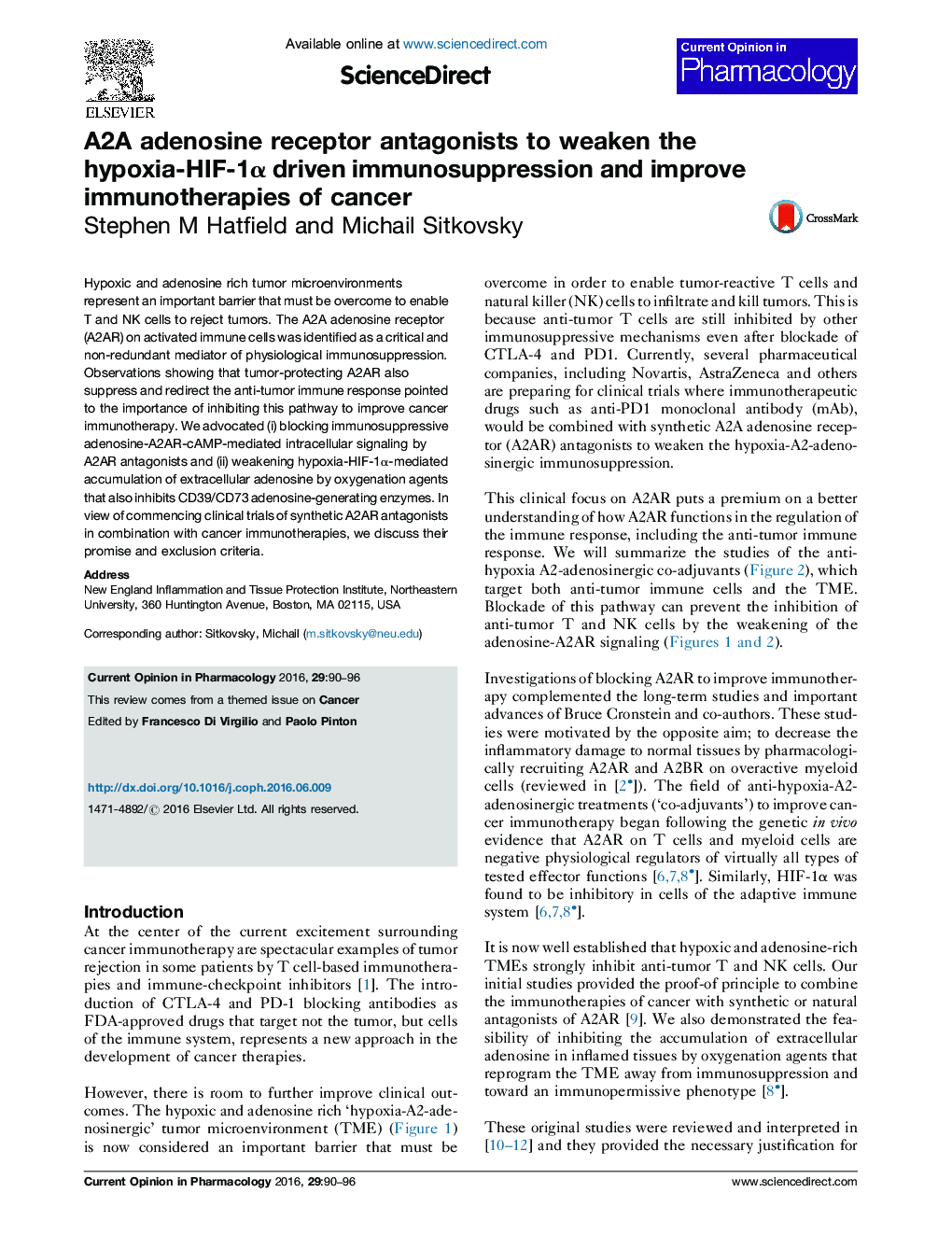| Article ID | Journal | Published Year | Pages | File Type |
|---|---|---|---|---|
| 5825862 | Current Opinion in Pharmacology | 2016 | 7 Pages |
Abstract
Hypoxic and adenosine rich tumor microenvironments represent an important barrier that must be overcome to enable T and NK cells to reject tumors. The A2A adenosine receptor (A2AR) on activated immune cells was identified as a critical and non-redundant mediator of physiological immunosuppression. Observations showing that tumor-protecting A2AR also suppress and redirect the anti-tumor immune response pointed to the importance of inhibiting this pathway to improve cancer immunotherapy. We advocated (i) blocking immunosuppressive adenosine-A2AR-cAMP-mediated intracellular signaling by A2AR antagonists and (ii) weakening hypoxia-HIF-1α-mediated accumulation of extracellular adenosine by oxygenation agents that also inhibits CD39/CD73 adenosine-generating enzymes. In view of commencing clinical trials of synthetic A2AR antagonists in combination with cancer immunotherapies, we discuss their promise and exclusion criteria.
Related Topics
Life Sciences
Neuroscience
Cellular and Molecular Neuroscience
Authors
Stephen M Hatfield, Michail Sitkovsky,
